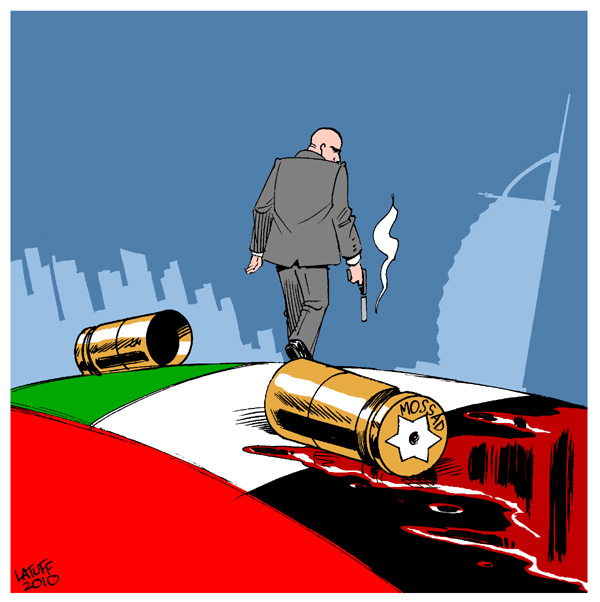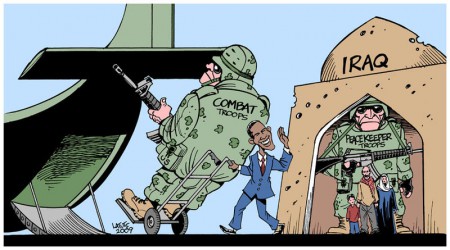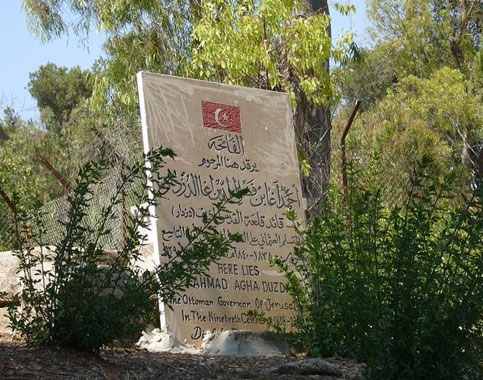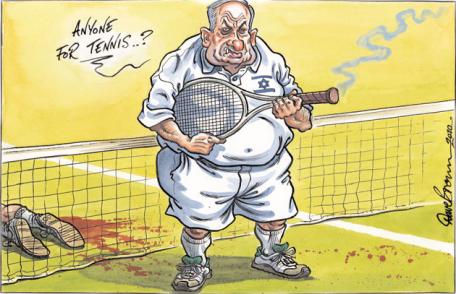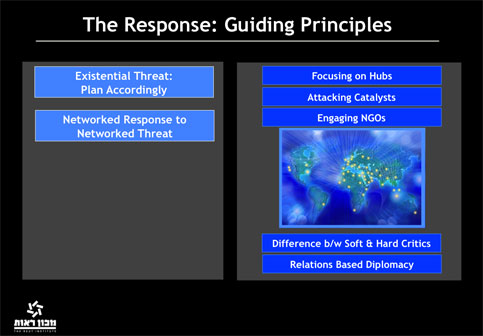EDITOR: Am now back home after a week in hospital, so will try and close the gap as soon as I can; bear with me…
Can peace in the Middle East be achieved while both Israelis and Palestinians refuse to give ground? Robert Fisk takes a road trip through a divided land, from Ben-Gurion’s Tel Aviv villa to Jerusalem, Bethlehem and the besieged Gaza Strip
There are no armed guards on the gate of Number 17 Ben-Gurion Boulevard in Tel Aviv, just a tired, two-storey villa set back from the street and an open door that leads to a dark kitchen and a little room with a cot on the floor.
There are bricks over the window above the neat little bed – to protect its owner and his wife Paula from Egyptian bombs during the 1956 Israeli invasion of Sinai, and the 1967 war – but upstairs is the bejewelled centre of this little home, David Ben- Gurion’s library of 20,000 books. I pad through this den, scribbling in my notebook any clues to the mind of this most persuasive of Israeli leaders. Most of the books are in Hebrew – on religion, histories of the Zionist movement, research on Eretz Israel – but the creator of Israel and its first prime minister was also a linguist. There are Demosthenes and Homer in Greek, a three-volume history of the Hellenistic world, Julius Caesar in French, Duff Cooper’s life of Tallyrand, George Bernard Shaw’s complete works, a history of Vichy France, Henry Picker’s Hitler’s Table Talk (in English), Freud on psychology (in German), Guy Chapman’s The Dreyfus Case, histories of Israel (including his own), a series on Jewish Influences on Christian Reform Movements. Ben-Gurion learned Spanish so that he could read a new biography of Cervantes. He loved Spinoza.
Then there are the photographs. Ben-Gurion with de Gaulle, with Kennedy and with a sad and debilitated Churchill, in 1961. Ben-Gurion wanted to read Churchill’s almost forgotten essay on Moses; Churchill’s letter to him, enclosing a copy of Thoughts and Adveures, is a little classic. “I have re-read it,” Churchill wrote, “…and I would not particularly wish it to be remembered as one of my literary works.”
But it was the set of Ben-Gurion’s quotations that caught my eye: statements on the eternal morality of the State of Israel, messages from the great man – who physically was a very little man (I opened his bedroom cupboard and there were jackets and trousers of almost midget size) – in time of war. Here is Ben-Gurion, for example, during Israel’s War of Independence – the Palestinian Arab ‘Nakba’ – when he feared that Jewish forces would destroy Muslim holy places in Jerusalem, cabling on 15 July 1948. “Further to my previous order relating to the Old City – you should see to it that the special force to be appointed for guarding the Old City uses mercilessly machine-guns against any Jew, and especially any Jewish soldier, who will try to pillage or to desecrate any Christian or Moslim holy place.” In 1967, he was boasting of how, during the establishment of the state of Israel, “we did not damage any single mosque.” Yet he was already creating myths. The undamaged mosques, he wrote in the same statement, were found in villages “without a single Moslem, as all of them had already fled during the [British] Mandatory rule and before the declaration of the State…” Amid the detritus of Ben-Gurion’s life, his thick-framed spectacles, his Quink fountain pen ink (“permanent black”), the willow-pattern plates, the original 1951 Marc Chagall sketch of a rabbi with a harp, the old transistor radio in the shelter – we shall forget the elephant tusk from the president of Gabon – there are musings on the morality and nobility and purity of arms of Israel’s army. “The fate of Israel depends on two factors: her strength and her rectitude.” And again. “The State of Israel will not be tried by its riches, army or techniques, but by its moral image and human values.”
During the blood-soaked Israeli siege of Beirut in 1982, an event which marked the decline of that rectitude and moral image, a wonderful Doonesbury cartoon depicted a press conference in which an anonymous voice asked an Israeli spokesman: “What has become of the Israel we knew and loved?” And the immediate rejoinder to the questioner? “Come off it, Yasser!” For in a sense, the lugubrious Arafat did adhere to Ben-Gurion’s myth-making. In the end, he even signed up for peace with the state which had already taken 78 per cent of the land he called home. He was a super-terrorist who became a super-statesman and then – after refusing to submit at the final Camp David meeting – became a super-terrorist again.
The truth is that Israel has destroyed many mosques, that the original Palestinian Arab victims of the 1947-8 war did not all flee, as Ben-Gurion suggested; many, like the doomed men and women of the Deir Yassin massacre, were murdered in their villages. The Israeli army, to some of us who have watched it in action, is a rabble, little different from the Arab armies of the Middle East. The numbers of civilian dead in the Gaza war were as much an outrage as the Sabra and Chatila massacre of 1982 when Israeli soldiers watched – quite literally – as the Lebanese militia they had sent into the refugee camps eviscerated the Palestinian civilians inside. Foreign journalists continue to prattle on about the supposed purity of Israel’s soldiers.
“Israel has already proved itself the most restrained nation in history. It has set an all-time record for restraint,” one Robert Fulford waffled in the Canadian National Post in January last year, at the height of the Gaza slaughter, when even Tzipi Livni admitted Israel’s soldiers had been allowed to “go wild”. Israel’s own rightist correspondents still portray the outside world as a dark, malevolent planet in which every criticism of Israel emerges from endemic anti-semitism, in which Nazism did not die in the embers of Berlin in 1945. The Jerusalem Post, bashes the drum of racism almost daily. “Berlin Holocaust studies professor slammed for defending Nazi mentor.” “Weisenthal slams Ukraine award to nationalist linked to Nazis.” “Dershowitz: Goldstone is a traitor to the Jewish people.”
I don’t doubt that Stepan Bandera’s Ukrainian nationalist movement was a dodgy bunch of racists – and its original adherents were indeed anti-semitic murderers in the Second World War – but where does this end? The Simon Weisenthal Centre – named after a truly honourable man whom I once met in Vienna as he campaigned for Gypsy as well as Jewish victims of the Nazis – is the same organisation which is now proposing to build a ‘Museum of Tolerance’ on an ancient Muslim graveyard in west Jerusalem. And poor old Richard Goldstone, a Jewish jurist and another honourable man whom I met in the Hague when he was investigating war crimes in ex-Yugoslavia, is a ‘traitor’ because he said that Israeli soldiers may have committed war crimes in Gaza; in other words, Goldstone – for this is the point – should have allowed his ethnic origins to rule in Israel’s favour rather than abide by the rule of law.
Last week, in the dog-day resort of Herzliya, I attended much of the vast conference of Israel’s great and good – or at least the largely right-wing variety – to find out how they now saw the country that was founded amid such danger by Ben-Gurion 62 years ago. It was the same old story.
“The Palestinians are the ones who are today the naysayers” – this from Prime Minister Benjamin Netanyahu’s ‘security advisor’, Uzi Arad – and the Goldstone Report had now become part of an insidious campaign against Israel, an attempt to “delegitimise” (this is the newest cliché) the state. There were boycotts of Israeli goods. Bonfires were made of Israeli products. “I do not know anyone whose stomach does not turn” at such a sight, said Arad.
Michael Hoenlein, vice-chairman of the immensely powerful Conference of Presidents of Major American Jewish Organisations, ann- ounced that Obama’s “engagement” with Syria and Iran had failed. Obama’s administration had been “supportive” over Goldstone (i.e. gutlessly supine in criticising a report which it had not even read). Obama now realised it had to work with Israel. There was unanimous consent in the US Senate over Iranian sanctions. No-one mentioned settlements or colonies. I was reminded of Hannah Arendt’s observation that the congress of World Zionist Organisation’s American section in October 1944 would “embrace the whole of Palestine, undivided and undiminished”. She went on: “This is a turning point in Zionist history… This time the Arabs were simply not mentioned in the resolution, which obviously leaves them the choice between voluntary emigration or second-class citizenship.”
For the whole article, please use the link above
EDITOR: The new victims – the Israeli mock0-left and their comeuppence
In many years of the conflict, we have not heard Naomi Chazan and her followers uttering such excited noises as they now do. It may well be that they were so quiet, because it was mere Palestinians who were getting treated roughly, of course. Now, that Ms Chazan has been sacked from her job in Israel’s most right-wing paper, the Jerusalem Post, there is much commotion and accusations of McCarthyism; well, did this just start last week, really? Did Ms Chazan had much to say about the rightist and extereme positions taken by the same paper all those years? Dis Prof. Chazan go on strike or demonstrate when Palestinian universities like Bir Zeit were closed by the IOA (Israel Occupation Army) for more than four years? It seems that the degeneration of the social structure is better noticed when it affects the well-heeled sectors of the Jewish elite.
Naomi Chazan’s limp brand of liberal politics was always based on her being part of the Zionist enterprise, and what she and her friends always tried is to make things look better – to improve Israel’s image abroad, mainly. For that role, she was invaluable. Well, the style has changed, and she is no longer crucial in that role, it seems. So now she has noticed quite a lot of worrying signs… it is amazing how such sacking sharpens one’s perceptive skills:
To disagree with the state is to ‘delegitimise’ the state: that is the increasingly strident response of the country’s political and military establishment to those who dare to criticise its conduct
It’s hard, sitting on the other side of the office table from which Naomi Chazan is picking at her modest hummus and salad snack lunch, to believe that the amiable 63-year-old university professor with a self-deprecating sense of humour has suddenly become the most discussed, not to say demonised, woman in Israel.
Ms Chazan is president of a long-established agency with large numbers of Jewish donors in the US and Britain, which is committed to fighting for “social justice and equality for all Israelis”. The New Israel Fund has over the last 30 years disbursed some $200m to around 800 charitable, social and human rights groups, and justly claims much of the credit for building modern Israel’s still vibrant civil society.
But in the last fortnight the former Knesset member who by her own account loves her native Israel “without reservation” has been sacked as a columnist on the Jerusalem Post after 14 years, had rowdy demonstrators outside her house brandishing a chilling caricature of her with a horn obtruding from her forehead, and most far-fetched of all, been accused, in a newspaper article circulated to foreign journalists by the Government Press Office, of “serving the agenda of Iran and Hamas”.
The onslaught has prompted Nicholas Saphir, the Jewish businessman who runs the New Israel Fund in the UK, to warn that the “Jewish values of social justice and our duty to tikkun olam (repairing the world) have come under serious threat in the state of Israel”.
The row has come to symbolise a new mood of establishment intolerance in Israel towards criticisms by Israeli human rights groups of such episodes as last year’s military operation in Gaza. This harsh new mood has been fuelled by ministers, right-wing politicians and military figures who have closed ranks behind accusations that the UN-commissioned report into the war, led by Richard Goldstone, which accused both sides of war crimes, is being used to “delegitimise Israel”.
The NIF’s travails began when a right-wing group called Im Tirtzu provoked accusations of latterday McCarthyism by charging that “without the NIF there could be no Goldstone report and Israel would not be facing international accusations of war crimes”. It is a charge which Abe Foxman, director of the US-based Anti- Defamation League and no great friend of the Israeli left, told New York Jewish Week was “absurd”.
Ms Chazan does not herself talk about McCarthyism –though several of her agency’s defenders, including Isaac Herzog, a Labour party minister in the governing coalition, have done so. But she told The Independent: “Every country has its own version of things but the general climate is very problematic. It’s ugly.” She said the mood reminded her of the hate-laced run-up to Yitzhak Rabin’s assassination in November 1995. “But it’s different, because that was an avowedly political disagreement. This is the beginning of a rather systematic campaign against really the very essentials of Israeli democracy.”
Ms Chazan cites the arrests of Israelis at demonstrations against the encroachment of Jewish settlers in the Arab East Jerusalem district of Sheikh Jarrah. And the interrogation and fingerprinting last month of her friend Anat Hoffman, of the reform group Religious Action Centre, who for 20 years has challenged ultra-Orthodox control of the Western Wall by seeking to entrench the right of women to pray in shawls there.
“There is an assault on the basics of law and order but most important I see this as part of a very pernicious attempt to stifle alternative voices, and most seriously to equate criticism with betrayal. And there is a very strong political underpinning to that. I would go further … behind this [is] a group of people who don’t want a political settlement. They don’t want peace, so they’re trying to delegitimise the human rights movement.”
She says that Im Tirtzu “expropriated” the term Zionism while “probably acting in the most anti-Zionist way I can imagine. They forgot to read the [1948] Declaration of Independence which talks of equality of all citizens of race, colour, creed, gender, nationality, etc. They also forgot the chapters in the Declaration where Israel extends its hand to its neighbours, they forgot basic democratic principles. They are hellbent to denounce anyone who dissents from the government line. Or dissents from their definition of what being a loyal Israeli is. That is ridiculous. Democracies are all about disagreements.”
She herself is a Zionist? “Right now they debased the term. Am I someone who believes that Israel has the right to exist as a democratic state with a Jewish majority? My answer is a resounding yes. Just as the Palestinians have the right to a Palestinian state with a Palestinian majority alongside Israel. And I think in that regard I express the view of the vast majority of Israelis.”
The NIF, excoriated by a series of right-wing columnists, has seen off- – for now – the prospect of a parliamentary commission of inquiry into its activities. And Ms Chazan welcomes the alternative prospect that a Knesset subcommittee will launch a probe of foreign funding of NGOs. But she adds: “We hope, are insisting, that they investigate the funding of all NGOs, including the NGOs of the right.”
Indeed Im Tirtzu, whose chairman was a prominent opponent of Ariel Sharon’s withdrawal of settlers from Gaza and has received funds from – among others – John Hagee Ministries, run by an ultra-conservative evangelical US pastor who has appeared to argue that the Holocaust was a good thing because it created the state of Israel.
The organisation’s accusations were based on a curious reading of the footnotes of the Goldstone report claiming that 92 per cent of those citing “non-official” Israeli sources came from human rights organisations supported by the New Israel Fund.
In fact NIF-supported groups account for only 14 per cent of citations in Goldstone, and many of these do not deal with Gaza at all, and even include references that are not critical of Israeli policy. Moreover while the main human rights organisations, from the Association of Civil Rights in Israel to the army veterans’ group Breaking the Silence, are supported by the NIF, as well as by European governments, they absorb less than 10 per cent of its funds, which also go to new Jewish immigrants, disabled, and women’s groups, among many others.
Human rights groups funded by the NIF were early advocates of an independent Israeli investigation. But the widely respected B’Tselem, for example, while tireless in highlighting Palestinian civilian deaths, has questioned the Goldstone conclusion that the Israeli military set out to target civilians. Ms Chazan strongly endorses the groups’ calls for the independent investigation which the Israeli government has so far resisted. “Israel has investigated every war since 1973. This is the first war where we have not set up an investigation. That’s hard to understand.”
Had the Netanyahu government helped to create the space for the right-wing onslaught on the NIF? “Look, it hasn’t denounced this vilification; and therefore draw your own conclusions.”
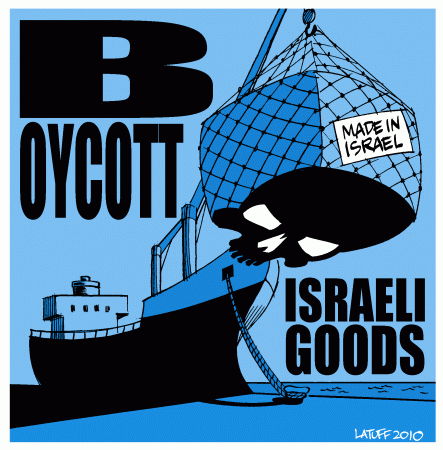
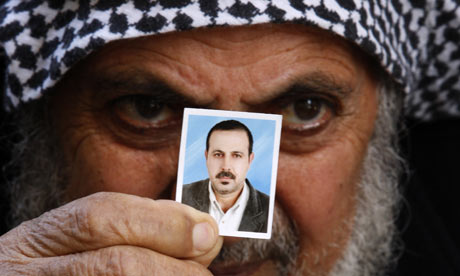 Ian Black
Ian Black